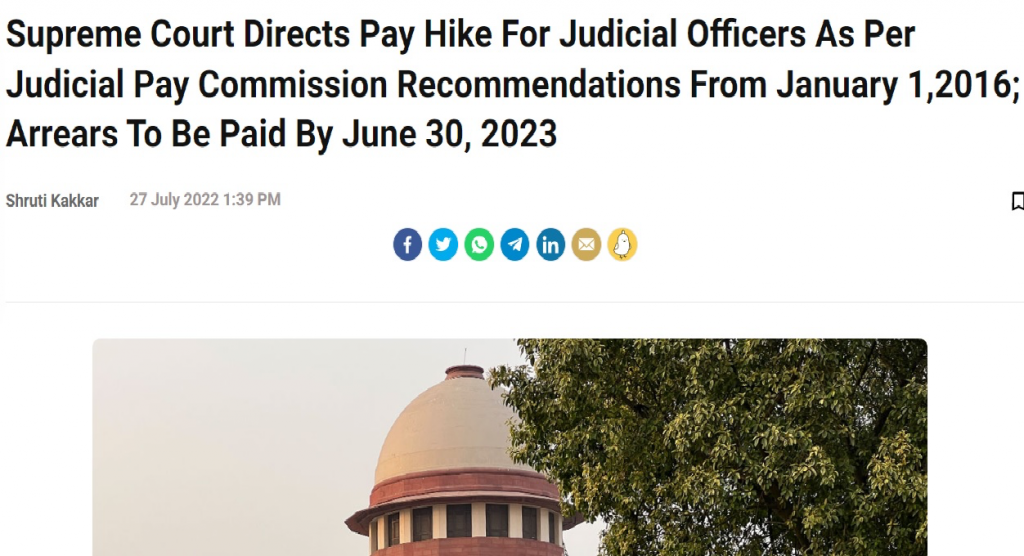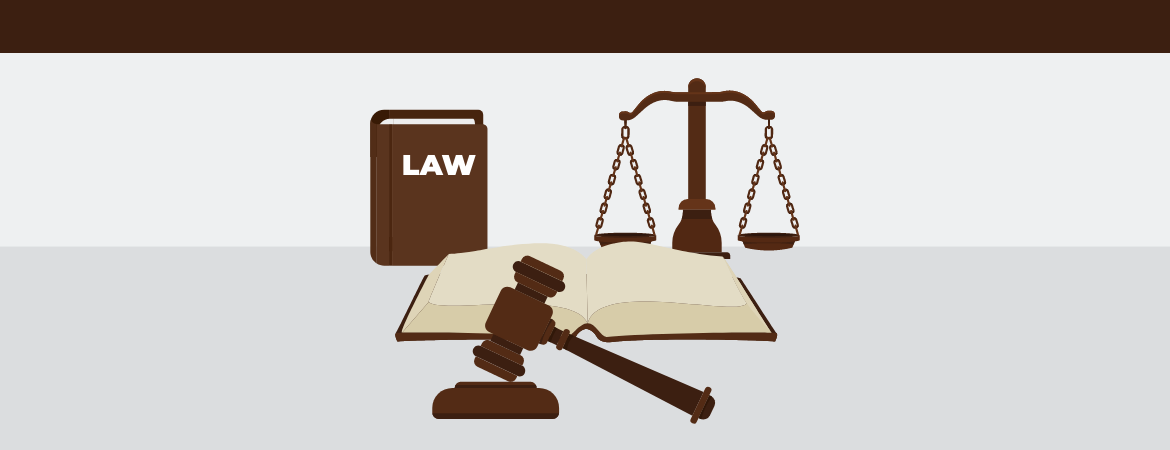In February 2020, the Second National Judicial Pay Commission issued a revised pay proposal for all judicial officers in the lower judiciary, whereby salaries would increase to three times the existing pay scales.
As per the pay commission’s report, judges in lower courts will now draw INR 80,000-1 lakh per month, while District Court judges will earn a little over INR 2 lakh per month.
The implementation of the proposal across the country will take a while, but it indicates the Government’s efforts to make the lower judiciary more financially rewarding as a profession. Which is why we feel this is the right time to host a bootcamp on ‘How to crack Indian Judiciary exams’.

Is it only about the money?
There’s a reason we have begun this message with pay scales. Ask any law student or legal professional, and they will say that one of the main reasons for them not attempting the Indian Judiciary exams is the low pay for judicial officers and judges, compared to those for corporate lawyers, for example.
What is the point, they will ask, of investing so much time and hard labour in clearing this very difficult set of exams when the returns are so slim?
Well, that question has been definitely answered by the second pay commission’s report. To expand on what we began with, here’s a breakup of the new salary structure:
| Position | Earlier pay (INR) | Proposed pay (INR) |
| Junior Civil Judge/First Class Magistrate | 27700 – 44700 | 77840 – 1,36,520 |
| Junior Civil Judge/First Class Magistrate (ACP after first 5 years) | 33090 – 45850 | 92960 – 1,36,520 |
| Junior Civil Judge/First Class Magistrate II (ACP 5 years after 1st ACP) | 39530 – 54010 | 1,11,000 – 1,63,030 |
| Senior Civil Judge | 39530 – 54010 | 1,11,000 – 1,63,030 |
| Senior Civil JudgeACP after first 5 years | 43690 – 56470 | 1,22,700 – 1,80,200 |
| Senior Civil JudgeII ACP* 5 years after 1st ACP | 51550 – 63010 | 1,44,840 – 1,94,660 |
| District Judge | 51550 – 63070 | 1,44,840 – 1,94,660 |
| District Judge – Selection Grade (after 5 years of Entry Grade) | 57700 – 70290 | 1,63,030 – 2,19,090 |
| District Judge (Super Time Scale – 3 years after Selection Grade) | 70290 – 76450 | 1,99,100 – 2,24,100 |
*ACP – Assured Career Progression
But is the judiciary only about an improved pay scale? What about power? The ability to make a difference in society? The security of a government job? Pride and social prestige?
Aren’t these equally attractive reasons to opt for a career in the lower judiciary?
Plus, depending on how early you start and your performance, you can retire as a judge of a High Court or even the Supreme Court.
To take just two examples, Justice Prafulla Chandra Pant entered the Uttar Pradesh Judicial Service in 1976 (clearing the Uttar Pradesh Munsif Services Examination 1973) and retired as Supreme Court Judge in 2017, going on to serve as an honourable member of the National Human Rights Commission from 2019-21.
Again, Justice M. Fathima Beevi began her career as Munsiff in the Kerala Subordinate Judicial Services in May 1958. She was promoted as Subordinate Judge in 1968, Chief Judicial Magistrate in 1972, and District & Sessions Judge in 1974. Elevated to the High Court as a Judge on August 4, 1983, she became a permanent HC judge on May 14, 1984. She retired in April 1989, but was further elevated to the Supreme Court as a judge in October, from where she retired in 1992.
Who is to say that their career trajectories cannot be yours too?
The many other benefits
As a judge, you are entitled to such amazing perks as a government residence, security, an assistant, car and conveyance, electricity and telephone allowance, medical allowances, additional funds for your own education, allowances for the education of children, soft loans to build a house, etc.
We will reserve a detailed discussion for the bootcamp, but consider these examples:
- When it comes to residential accommodation, the minimum plinth area for a District Judge is 2500 sq. ft, while that for a Civil Judge is 2000 sq. ft
- A furniture grant of INR 1.25 lakh is provided every five years to judicial officers subject to proof of purchase
- State governments allot annual funds for maintenance of residences to each judicial officer as per rank. Additional annual funds of upto INR 10 lakh are allocated for general maintenance of officers and staff residences, court etc
- The Principal DJ, Family Judge, and CJMs are provided with bungalows (6 BHK generally, or a minimum of 5 BHK)
- All judicial officers receive a fixed medical allowance of INR 3,000 per month. All officers including pensioners/ family pensioners are entitled to treatment at government empanelled private medical facilities, for which they will be reimbursed on submission of bills
We could go on in this vein for a long time, but you get the idea. Honestly, we cannot think of too many private sector jobs that would offer you such a balanced lifestyle, combined with regular working hours, low stress, abundant court holidays, and such steady career progression.
Not everybody is made for the high-stress, relentlessly target-driven life of a corporate lawyer or in-house counsel, where the endless working hours and lack of work life balance often lead to total burnout,
You need to work for it
Naturally, all these benefits and luxuries will not fall into your lap easily. The Judiciary exams, like most other top-ranking competitive entrance exams in India, are tough to clear, no matter which state you appear from. And it is even tougher to prepare for them on your own, without assistance.
However, with the rapidly expanding vacancies for the lower judiciary, the demand for magistrates and judges will keep growing. And with a little help from LawSikho, you are in a prime position to cater to that demand.
Join our free three-day (LIVE only) bootcamp on ‘How to Crack Indian Judiciary Exams’, May 27-29, 6.00-9.00 p.m. IST daily. Take the first step to change your life, and the lives of millions seeking justice.
Important: Since this course is for Judiciary exams in India, the bootcamp will be useful only to Indian citizens with an Indian law degree.
For more useful information and links, do also join our Telegram channel.

